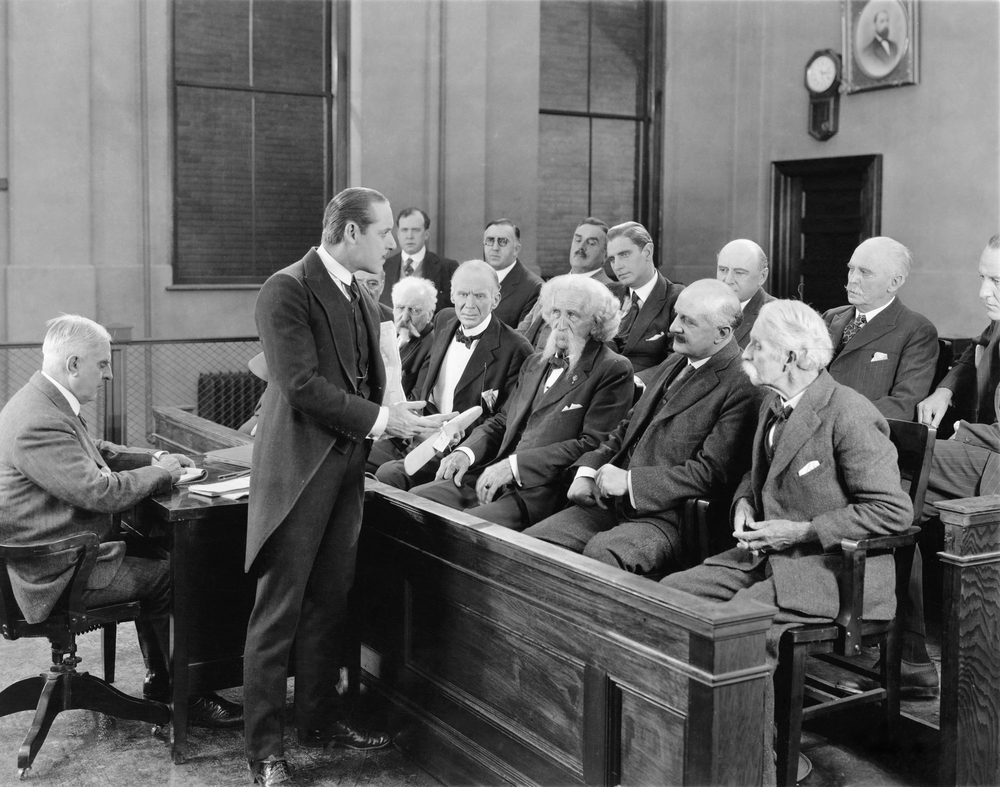California Film Financing Attorney Sebastian Gibson

California Film Financing Attorney Sebastian Gibson
Securities Law and Film Financing
Federal and State securities laws, frequently come into play in the financing of film and television projects as California Film Financing Attorney Sebastian Gibson will tell you. For the most part, these laws were drafted to protect passive investors, investors not involved in the day-to-day decisions of the producer’s entity issuing the securities. They can be onerous and even with the requirements for private placement memorandums, known as offerings, an unscrupulous party can still defraud investors.
Film financing law as it applies to what film lawyers advise clients, generally involves advising producers interested in selling interests in a production entity to finance their film or TV project that they will need to have an attorney who specializes in securities to prepare an offering. The financing aspect of producing a film or television project is, more often than not, a complex and sometimes very time-involved process governed by federal and state disclosure requirements set forth in these security laws.
Producers and their entities issuing securities are required to provide a full disclosure of all the material facts regarding the investment in the film or television project and all the risks passive investors will face should they invest in the production company and its projects or a specific project depending upon how the production entity functions and what the investment entity of the production company issuing the securities is set up to produce.
Information a reasonable person would want to know when deciding whether or not to invest in a film project, is material information an investor relies upon and must be honestly and fully disclosed.
Producers who need financing from passive investors to finance their film or TV projects routinely seek experienced securities attorneys to write an Offering Plan ( a Private Placement Memorandum), which must then be registered with the applicable federal and state authorities unless they are eligible to file for an exemption from registration.

California Film Financing Attorney Sebastian Gibson, the Right Choice
From Malibu to San Diego where California Entertainment Lawyer Sebastian Gibson graduated from the University of San Diego School of Law, to his current offices in the Palm Springs area and Newport Beach to London where he has practiced law extensively, California Film Financing Attorney Sebastian Gibson is the right choice for all your entertainment film and television productions, projects in development and film and TV agreements for productions in the U.S., the UK and around the world.
With offices in the Palm Springs area where Live Nation will be opening a new arena in 2022 to Palm Desert to the eastern portion of the Coachella Valley where AEG subsidiary Goldenvoice produces the Coachella Valley Music and Arts Festival and the Stagecoach Music Festival, California Film Financing Attorney Sebastian Gibson is the Coachella Valley’s premier law firm.
Choosing California Film Financing Attorney Sebastian Gibson
The California film law firm of California Film Financing Attorney Sebastian Gibson not only has Southern California covered, from Palm Springs to Orange County, but we have the world covered as well from London where some of the finest films and television series continue to be produced.
For many years one of the world’s most iconic entertainment law firms for modeling and publishing, representing models and writers throughout the world, Sebastian Gibson is on track to becoming one of the world’s leading law firms for music, film, television, theater and worldwide entertainment events in addition to its expertise in the fields of modeling and publishing.

Securities Offering Plans
Offering Plans (Private Placement Memorandums) in connection with a film or television production will generally include, among other information, a description of the securities being offered, descriptions of the most important elements of the film project, a list of the key people involved and their experience, descriptions of each of the risk factors of investing in such projects, the budget for the project and provide projections of the costs that can and will most likely affect the net profits from which the investors will, if there are net profits, receive a return on their investment. But that’s just the tip of the iceberg.
Offering Plans must list and state where all the agreements relating to the offering are on file. The offering must also provide that these agreements can be examined on request. Among some of the most important risks to film production which should be disclosed is the risk the producer will failure to obtain sufficient money and other events which could cause the company to be unable to complete the project, the risk that the producer will not be able to obtain distribution even if the project is completed, and all the specific risks which could cause the investors to be unable to recoup some or all of their investment, thereby resulting in the loss of their money.
The private placement memorandum should detail the specific risks associated with film production rather than providing general risk formulas. It should avoid overinflated revenue projections which are the exception rather than the rule. Comparing the film which yet to be produced to films which brought in a more than a billion dollars in worldwide box office receipts is likely to be unfavorably viewed by the SEC.
If the entity being used to produce the film owes hundreds of millions in unpaid taxes, or has other legal issues such as ongoing litigation, that would certainly be something an investor would want to know in order to make an intelligent decision before investing in that entity’s LLC.

Consequences for Misrepresentations in Offerings
If the producer or the issuing entity attempts to be dishonest, the individuals responsible can be held criminally liable for knowing misrepresentations of facts. In addition, the investors can be entitled to a refund of their investment (if they can collect from the producers) if the producers or any others involved in dishonesty hide or misrepresent facts regarding the production or the investment risks of the project which a reasonable person would want to know when deciding whether or not to invest in a film project. It can’t be stressed enough that an intentional failure to comply with securities laws is a criminal offense.
However, even if an offering fits into an exemption from federal or state registration, SEC Rule 10b-5 obligates the issuer of securities, i.e. the producer in this case, to disclose all material information to any offerees and all investors. That means, all the information an investor might reasonably require to make an intelligent investment decision.
While Hollywood is known for making big films with big ideas, and big dreams, the exaggeration of the prospects for huge box office receipts, net profits and the repayment of investments would be unwise considering these laws.
Exemptions from Registration
Regulation D of the Securities Act of 1933 contains rules providing exemptions from the registration requirements, allowing some companies to offer and sell their securities without having to register the offering plan with the SEC. In the past some have mistakenly thought that means offerings don’t need to be provided, which is an entirely wrong reading of the law. Offerings must still be made even if they qualify for an exemption from registration and all of the rules regarding the honest disclosure of risks still apply.
These securities laws apply whether investors are issued stock in any type of corporation, limited partnership interests in a limited partnership, membership interests in a limited liability company, or profits interests in a film and the investors are not involved in the day-to-day decisions of the company issuing the securities.
SEC rules and state rules do offer exemptions to registration requirements for certain types of offerings, but the exemptions requirements often are too restrictive for the amount of investment a filmmaker needs to produce their film or television project.
The desire to avoid registration is in part because preparation of disclosure documents by attorneys who specialize in securities is so expensive. Registration requires continuing obligations which can be time consuming as well, and as a result of all of the disclosures of otherwise private information, the personal information and privacy of the producer and their team is considerably less private.
Filmmakers hoping to qualify for an exemption from registration for their offering should discuss the requirements and limitations of such exemptions for certain types of offerings with an attorney who specializes in securities offerings in their state.
It is important to stress that even when registration is not required pursuant to qualifying for an exemption from registration, a company must still provide the information investors need to make an informed decision. They must still have access to all material facts and information which affords them the ability to appreciate all the risks before they invest. The exclusion or omission of such information as well as the provision of false or misleading facts must be avoided.

State Securities Laws
States also have securities laws, commonly referred to as “Blue Sky” laws, which control the offer, issuance, and sale of securities in that state.
California’s exemption to securities registration is California Corporations Code Section 25102(f) which requires 1) The offering is limited to a maximum of 35 investors (excluding accredited investors); 2) The investors or their advisors must be financially sophisticated or have a pre-existing personal or business relationship with the promoter; 3) Each purchaser represents that the purchaser is purchasing for the purchaser’s own account; 4) No advertising is permitted; and 4) Form 25102f must be filed with the California Secretary of State.
The Law Firm Sebastian Gibson does not prepare securities offerings, however we can refer producers to attorneys who specialize in securities law.
Personal Financing by the Producer
Despite the advice of others, many independent filmmakers, especially successful producers, will use their personal funds to finance some or part of the films they produce. There are no legal restrictions to prohibit a producer from risking their own funds. No private placement offering is required if a producer funds a film entirely by themselves.

Debt Financing of Films
With debt financing, a producer approaches a bank. The bank gives the producer some or all of the money to produce the film and in the loan documents, the producer promises to repay the loan. Banks, however, are not fools and will generally either require sufficient collateral to protect themselves or demand to see a distribution agreement and other information on the project and then they will perform their due diligence.
The collateral a bank may require isn’t simply the producer’s assets such as their home. It will likely include the producer’s rights to the screenplay and the project and any minimum guarantees any distributor has made to the producer. A bank lender may also request a completion bond which can significantly add to the cost of making a film.
In doing their due diligence, a bank or other lender will likely demand to review any binding commitments by A-list actors and other creative talent to participate in the film, the film’s budget, a schedule showing how and when the funds the bank is lending as well as any distribution agreements which provide minimum guarantees.
In debt financing, the producer is obligated to pay back both the principle and interest regardless of whether the film makes money. The bank or other lender does not participate in any profits from the film except to the extent they are used in the end to pay back the principal and the interest.
In assessing the risk of lending the producer money for their film, the bank will also assess the track record of the producer. A first-time producer has a much reduced chance of obtaining a bank loan as one would expect, than a successful producer with a dozen films to their name with good box office receipts.
If a lender is what the SEC considers to be an accredited investor such as a venture capital fund or a Hollywood Studio a private placement offering is unlikely to be requested by them. While an angel investor is generally an accredited investor, it’s probably safer to provide them with an offering memorandum.
Requesting an investment from family members or friends, even if the amount is less than $100,000 without a private placement memorandum is risky. Without providing them with all of the information required in an offering, it’s unlikely they would be able to appreciate all the risks of their investment. Should they lose their investment, even a family member may decide to consult with an attorney, not to mention one’s ex-friends.

The Right California Entertainment Lawyer and the Law Firm of California Film Financing Attorney Sebastian Gibson
California Film Financing Attorney Sebastian Gibson has been called “Brilliant” and “A Legend” and is a cum laude graduate of UCLA. He has law degrees both from the University of San Diego School of Law and from Cardiff University in Wales where he graduated magna cum laude.
With these dual law degrees in the U.S. and Great Britain, and over 40 years of combined experience both in London and California, California Film Financing Attorney Sebastian Gibson is the international entertainment law firm to turn to for music events, festivals and world tours, music, film, television, songwriting, film music licensing, film and TV production agreements, publishing, modeling, athlete representation, and other creative aspects of the entertainment industry in the U.S., the UK and around the world.
The Right California Film Attorney, California Film Financing Attorney Sebastian Gibson
Focused on bringing great film projects to UK film producers who recognize the unique voice of British actors, directors and crews and as a California entertainment powerhouse working with actors, musicians, songwriters, novelists, models and athletes from offices just near enough to Hollywood but far enough from the congestion of LA, California Film Financing Attorney Sebastian Gibson is the right choice and the law firm to choose for all your entertainment endeavours from California to the UK and throughout the world.
California Film Financing Attorney Sebastian Gibson has been named one of the 2022 Top Lawyers by the prestigious Palm Springs Life Magazine for the past 12 years in a row and is one of the most acclaimed lawyers in the Coachella Valley of California. California Film Financing Attorney Sebastian Gibson has written for the Los Angeles and San Francisco Daily Journal Newspapers, is a published novelist and wrote and recorded the music and lyrics for the musical, Shake in London. Film Financing Attorney Sebastian Gibson also has a top rating of “Superb” by Avvo, their highest rating, which rates attorneys all across the U.S.




